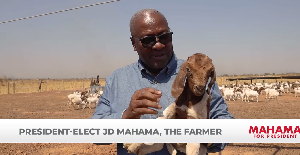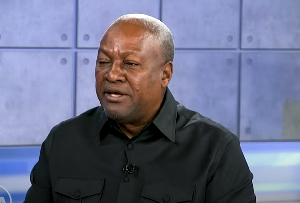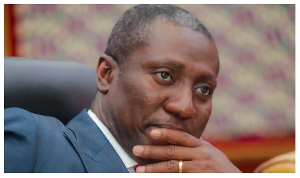Accra, Aug. 31, GNA - The integration of power systems of the countries in the West Africa sub-region received a boost on Wednesday with the signing of a 40 million-dollar agreement covering the first phase of the project between Ghana and the World Bank.
The amount, which will be used to get underway the construction of the 100 million dollar coastal Transmission Backbone of the West Africa Power Pool Project, is to be on lent to the Volta River Authority (VRA). The VRA is to undertake the upgrading of 330 kilo volts single circuit transmission line from Aboadze to the VRA substation at Tema, the installation of a 330 kv switchyard at Aboadze, equipped with phase shifting transformer and the supply and installation of terminal equipment at Aboadze and Volta substations.
The credit financed by the International Development Association, the soft lending arm of the World Bank, is to be repaid in 30 years with a grace period of 10 years.
Finance Minister Mr Kwadwo Baah-Wiredu signed for Ghana while Mr Mats Karlsson, World Bank Country Director, initialled on behalf of his institution.
Mr Baah-Wiredu said countries in the sub-region would be unable to attain national sufficiency in electricity supply because of the high cost of power generation and transmission infrastructure. Hence the need for the WAPP project, which is designed to facilitate cross-border electricity trade and put in place both at the national and regional levels the infrastructure for sustainable implementation of the ECOWAS Economic protocol.
"The Community's vision is to develop and put in place the WAPP as a cooperative power pooling mechanism for integrating national power system operations into a unified regional electricity market," the Minister said.
Mr Baah-Wiredu explained that the long-term vision was to meet the region's projected electricity requirement by harnessing electricity from the large hydropower facilities on the region's major rivers, develop the untapped hydro resources in Guinea and an expansion of gas-fired power generation to make use of natural gas from Nigeria. Mr Mats Karlsson said the project would help tie up the transmission of power lines to enable the countries to benefit from lower cost of energy.
He said there could not be any development without access to energy and asked member countries to make ECOWAS the frontline agency for economic development within the sub-region.
"There have been enough political rhetoric's and solidarity. It is time to move on and back up the ideals through concrete investments," Mr Karlsson stressed.
Professor Mike Ocquaye, Energy Minister and Dr Kofi Konadu Apraku, Minister of State in charge of Regional Cooperation both lauded the agreement, saying it was a clear demonstration of cooperation among member states to share resources for their advancement. Dr Olatunji Kolapo, Nigerian High Commissioner to Ghana, said the countries in the sub-region were committed to the integration process.
Click to view details



Business News of Wednesday, 31 August 2005
Source: GNA
















